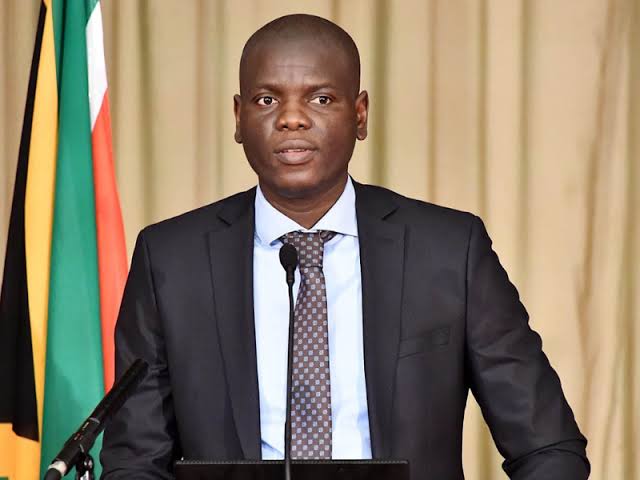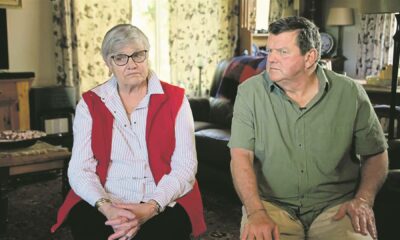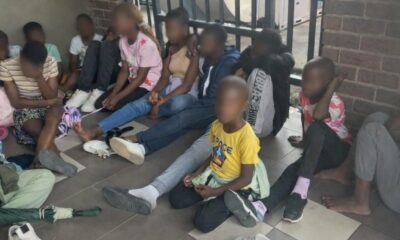News
Left Behind: Over 200 South Africans Trapped in Thailand’s Human Trafficking Nightmare

A dark web of deceit, a crisis of hope, and a country racing against time to bring its people home
Imagine packing a suitcase, full of excitement about a new job overseas, only to find yourself locked in a room, beaten, starved, and forced into cybercrime. That’s the cruel reality for more than 200 South Africans still trapped in Southeast Asia, victims of an elaborate human trafficking scam that continues to devastate families across the country.
These victims weren’t abducted at gunpoint. They were recruited online, promised well-paying jobs in Thailand with perks like free flights, accommodation, and salaries that sounded too good to pass up. For many young, unemployed South Africans, especially those with skills in marketing, IT, and English, the offers were irresistible.
But the promise was a lie.
From Dream Job to Nightmare
The moment they landed in Thailand, the situation changed. One-way plane tickets quickly turned into one-way doors to hell. These young professionals were trafficked into Myanmar, forced into long, gruelling shifts inside illegal online scam compounds.
The work? So-called “pig butchering” scams, elaborate digital schemes where workers build online relationships with targets, gaining their trust before defrauding them out of their life savings. If the victims refused to comply or failed to meet quotas, they were tortured, beaten, starved, and denied medical care.
Some were forced to work up to 16 hours a day, kept on a diet of rotten food and dirty water.
Emma van der Walt, head of Brave to Love SA, a non-profit fighting human trafficking, has seen the trauma firsthand. Her organisation, in partnership with DIRCO, Interpol, the Hawks, and other state agencies, has been instrumental in coordinating rescue operations.
“This is one of the most sophisticated trafficking networks we’ve seen,” she said. “They prey on economic desperation and false hope. These are not isolated incidents, they’re part of an international web of organised crime.”
Why Can’t They Come Home?
In March, South Africans were shocked to learn that 23 victims had been rescued from Myanmar and safely repatriated. That group was carefully chosen, the most vulnerable, according to Van der Walt. Three more have since returned, bringing the total to just 26.
That leaves more than 200 still stuck, not because they haven’t been found, but because they can’t afford plane tickets home.
Government officials, like Clayson Monyela, head of public diplomacy at DIRCO, have explained that the state cannot cover personal travel costs. Assistance through embassies is limited to non-financial support, unless the individual is entirely destitute.
For families back home, this adds another layer of helplessness. Some have turned to crowdfunding, while NGOs like Brave to Love continue to raise emergency funds for flights and reintegration efforts.
Social Media Echoes the Outcry
News of the trafficking ring has struck a chord across platforms. On TikTok and X, users are tagging government departments and calling for urgent intervention.
One user wrote, “How can we leave our people stranded in another country, in slavery? This is a crisis, not a budget issue.”
Others have shared warnings about suspicious job ads, especially targeting youth. The call for awareness is growing louder.
Cultural and Economic Roots
The heart of this crisis isn’t just in Thailand or Myanmar, it’s here at home.
High unemployment, especially among South Africa’s youth, creates fertile ground for trafficking syndicates. Many of the victims are desperate for a chance, any chance, to work and support their families. Scammers know this — and exploit it with chilling precision.
“It’s economic vulnerability at its most dangerous,” Van der Walt said. “We need more than rescue operations. We need to educate, prevent, and protect.”
Where Do We Go From Here?
The issue has now become a matter of national concern. NGOs, government departments, and communities are racing to get these young people back, but it’s a race against time, funding, and criminal syndicates still luring new victims as we speak.
Brave to Love is urging South Africans to verify overseas job offers, check in with the nearest South African consulate, and never accept a one-way ticket without proper vetting.
“This is a growing crisis,” Van der Walt warned. “We cannot afford to let it fade from the headlines. Every day someone new is at risk.”
For now, the 200-plus South Africans trapped in Myanmar wait. And back home, so do their families, clinging to the hope that someone, somewhere, is working to bring them home.
{Source: IOL}
Follow Joburg ETC on Facebook, Twitter , TikTok and Instagram
For more News in Johannesburg, visit joburgetc.com



























